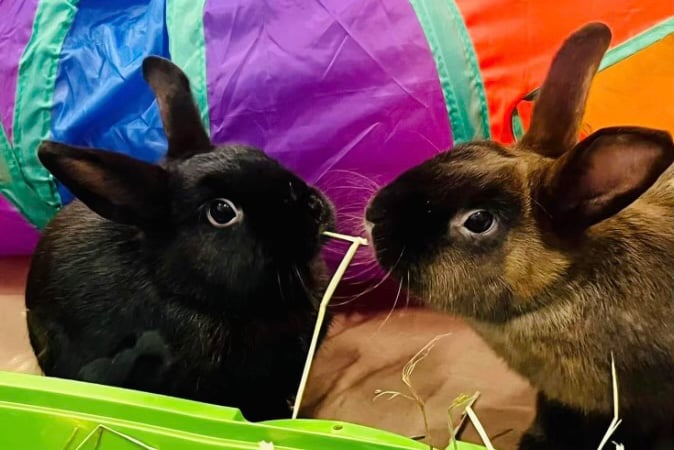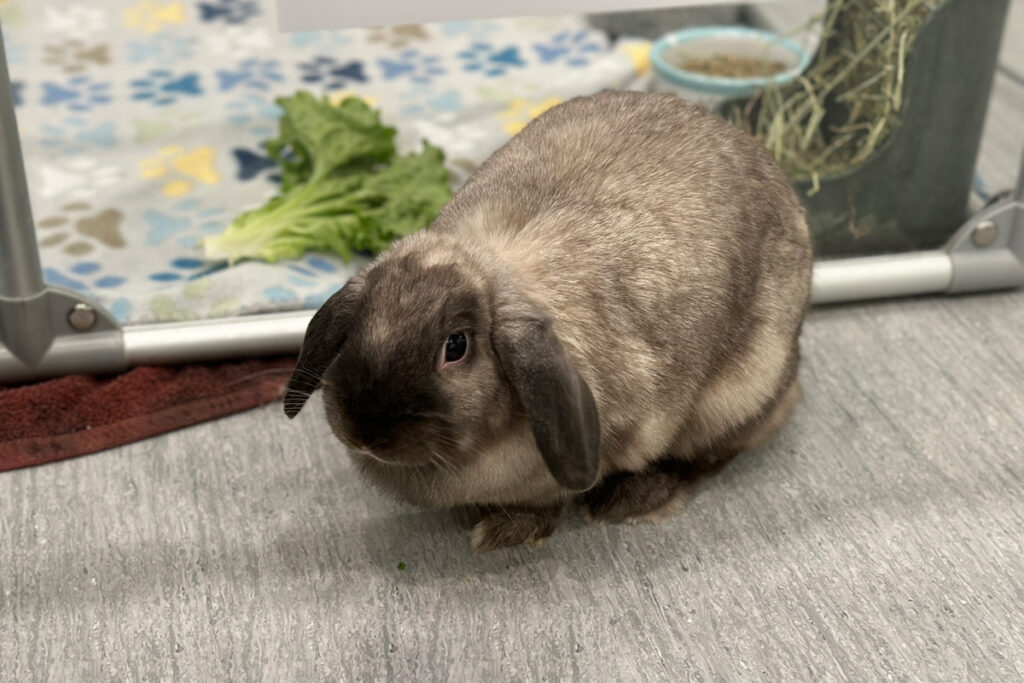Cute and fluffy, and full of hippity hoppity fun, bunny rabbits can make great pets. But just like adopting a dog or a cat, they are a lifetime commitment that should be well thought out before bringing one into your home.

There are many similarities between having a pet rabbit, or a dog or cat. Domestic rabbits can quickly form a bond with their humans. And just like any companion animal, rabbits can provide love, companionship, and increased health benefits to their owners. However, there can be a misconception about the care rabbits need from their owners in order to thrive in their new homes.
Not a child’s pet, but a family pet. Parents often bring home a rabbit for their small children, but rabbits are actually more work than one might think. They are sensitive by nature and may not like being picked up and handled roughly. The day-to-day care of your new bunny rabbit should be a family affair, with the adults taking the lead.
As with any new pet, you will need to spend time with litterbox training and have patience for the occasional scattered droppings. There may be some chewing/scratching of furniture or walls, and this can be corrected with positive reinforcement. You may need to bunny-proof the areas of the house they will be allowed in to avoid these instances in the future.
Rabbits need their area kept clean, as well as their fur. Regular brushing, particularly for longer hair breeds, will prevent matting. Changing/cleaning their bedding or straw regularly can prevent lingering odors and will also find any stray droppings that may have been missed.
Rabbits respond to routine, so keeping to a schedule for feeding, water, and playtime will make it easier for your bunny, and your family to enjoy your time together.
Space inside the home. Even though rabbits are small animals they do not like small spaces. Rabbits should have their own space inside the home that is large enough for them to easily move around and get 3-4 hours a day of exercise and socialization. Consider including tunnels and cat caves for them to explore. Since rabbits are social creatures who want to be with you, plan on spending lots of time in their area with them getting some quality bunny time together.
Domestic rabbits should always be kept indoors. Not only is the small size of an outdoor bunny hutch not ideal for your pet, but they can also become susceptible to fleas and ticks, and other vermin that love to find a warm furry spot to get lost in.
Unlike in the wild, domestic rabbits are very sensitive to sounds and weather. A passing car or quick rain shower can be very traumatizing for them. The best place for your bunny is safe inside with you.

Diet and daily care. Unlike in the cartoons, a rabbit’s diet is not all about carrots! Keeping your rabbit eating the proper foods is vital to its continued good health and hoppy-ness. A rabbit’s diet should include hay, fresh vegetables, and commercial pellets. Fruits can be given in small amounts, but only as an occasional treat.
It’s very important to note that not all vegetables and fruits are safe for rabbits, many can even be fatal. Always avoid feeding your rabbit potatoes, rhubarb, mushrooms, kidney beans, iceberg lettuce, and avocados. Healthy options for your pet include:
Alfalfa sprouts
Arugula
Basil
Bell Peppers
Brussel Sprouts
Cabbage
Carrots
Celery
Cilantro
Dill leaves
Endive
Fennel Kale
Mint
Mustard greens
Parsley
Radicchio
Radish tops
Romaine lettuce
Spinach
Spring greens
Summer squash
Turnip greens
Watercress
Zucchini squash
In general rabbits, like any pet, need time, patience, and commitment. They can be a wonderful addition to your home and family and can provide many years as beloved companions.
The most important thing to remember is that domestic rabbits are not the same as wild rabbits, and they would not survive if abandoned outdoors. They are not capable of living outside the care of humans. If they did not become easy prey to larger predators, they would simply starve. If you have a rabbit that you can no longer care for, please contact your local animal shelter or humane society.


